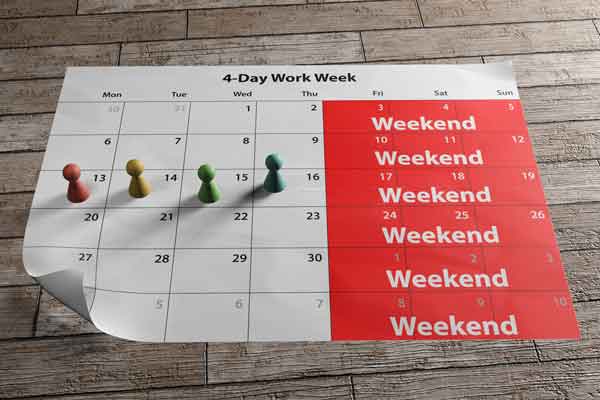RESEARCH LINKS

THE IDEA OF THE 32-HOUR (OR FOUR-DAY) WORKWEEK has been bandied about for decades in the U.S. As far back as the 1950s, The New York Times reported that then U.S. Vice President Richard M. Nixon—a Republican—predicted the coming of the four-day or 32-hour workweek in our nation. In a Sept. 23, 1956, NYT article, reporter William M. Blair wrote, “Vice President Richard M. Nixon foresaw tonight for the ‘not too distant future’ a four-day workweek and a fuller family life for every American.”
Issue 1: 32-Hour Workweek
Congress.gov: H.R.1332 “Thirty-Two Hour Workweek Act”
The Hill: “33 Companies Tested 4-day Week. None Are Planning to Switch Back”
shrm.org: “Is the 32-Hour Workweek Feasible in the US? Experts Weigh In”
New York Times: “Trial Run of 4-Day Workweek Wins Converts”
KXAN.com: “60 School Districts in Texas Have Made Switch to 4-day Weeks”
Higher Ed Dive: “Inside One College’s Move to a 4-day Workweek”
Issue 2: Gas Stoves
Congress.gov: S.240 “Gas Stove Protection and Freedom Act”
U.S. Oil and Gas Association: “Hands Off My Stove”
Fox News: “Democrat Led Cities Already Moving Forward on Gas Stove Bans”
USA Today: “Gas Stove Bans Explained: Why Are They Suddenly Controversial?”
Wall Street Journal: “Banning Gas Stoves by Regulation”
Fox News: “’Hands Off My Stove:’ Group Pushes Back Against Gas Stove Bans”
DISCUSSION QUESTIONS
Issue 1: 32-Hour Workweek
- How do you think having a shorter workweek would affect workers’ productivity? Would it rise, fall or remain the same? Why?
- If your school changed to a 4-day week, how would that affect your life? For instance, you might have less time for an after-school job. What are other ways such a schedule might affect your life?
- How might a shorter workweek be good or bad for the environment? Explain.
- In Japan, Microsoft trialed a four-day workweek and saw improvements in workers’ productivity and job satisfaction. Do you think this would work in the U.S.? Why or why not?
- How did the COVID pandemic change American workers’ expectations about work/life balance? Explain.
Issue 2: Gas Stoves
- Why do you think gas stoves have become such a “hot topic?” What is the underlying issue? Explain.
- Regarding gas stoves, CPSC Commissioner Richard Trumka, Jr. said, “Products that can’t be made safe can be banned.” Republications charged that the statement was a weaponization of the federal bureaucracy. Do you agree? Why or why not?
- Trumka later clarified that regulations restricting gas stoves would apply to new products only (not gas stoves currently in people’s homes). Does this change your opinion? Why or why not?
- Read the pro/con quotes for the gas stoves issue on p. 3 of the Student Forum newsletter. Whose opinion do you agree with more? Explain why.
- Do you think it’s unfair to tell people which appliance they can and can’t use? Why or why not?

